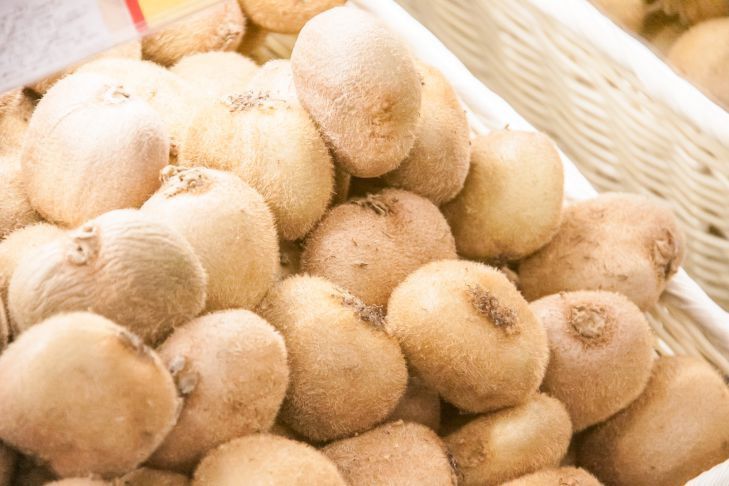Kiwi: What Happens If You Eat It Every Day
Want something tasty, nutritious and healthy? Here it would be appropriate to add kiwi to your diet, rich in vitamins C, A, E and other useful substances.
It is high in both soluble and insoluble fiber, which is an excellent source of dietary fiber, which is beneficial for healthy digestion, blood sugar regulation, feelings of fullness, etc.
Nutritionists say that this berry (although we usually consider kiwi to be a fruit) contains much more vitamin C than an orange.
One kiwi contains 85.1 g of vitamin C, while an orange contains 53.2 g, and the golden kiwi variety contains as much vitamin C as two oranges.
This berry is also rich in other useful substances: folic acid, potassium, copper, iron, magnesium, calcium, phosphorus, etc.

It is healthy to eat one or two kiwis daily, in the morning, combining them with dishes that contain a lot of protein, for example, with sour milk cheese or yogurt.
This berry is also delicious at other times of the day; it can be used as a snack or added to fruit salads.
Kiwis should be cut at the last moment, as they contain enzymes that act as a food tenderizer.
Kiwi is recommended to be given to children as complementary food after one year of age, peeled and cut into slices.
Useful properties of kiwi
1. Kiwi has a low glycemic index. This means that carbohydrates are absorbed by the body more slowly, so this berry can be included in the diet of diabetics.
2. High in Fiber: Kiwi is a great source of dietary fiber, which is beneficial for healthy digestion, blood sugar regulation, feeling full after meals, etc.
3. Contains antioxidants. Vitamin E and carotenoids help neutralize harmful free radicals in the body and reduce oxidative stress, which helps prevent many diseases.
4. Rich in Potassium: Kiwi contains a significant amount of potassium, which is useful for maintaining healthy blood pressure and heart function.
5. Promotes digestion. Contains the enzyme actinidin, which helps digest proteins.
6. Makes skin firm and elastic. Kiwi is good for skin health due to its high vitamin C content.
This vitamin plays a crucial role in the production of collagen, which keeps the skin firm and elastic, and also helps fight aging and promote healthy, glowing skin.
7. Helps to lose weight. Contains a lot of fiber and helps to lose weight and control weight. It is a healthy snack, 100 g of kiwi contains 43 kcal.
8. Contains eye-friendly antioxidants: These are lutein and zeaxanthin. These compounds reduce the risk of age-related eye diseases, such as macular degeneration, and help maintain good vision.
9. Kiwi is useful for pregnant women. During pregnancy, eating kiwi prevents night muscle cramps and improves microcirculation in the legs.
High levels of folic acid prevent the occurrence of nervous system defects in children.
How to choose a ripe and sweet kiwi
Dietetics recommends squeezing the kiwi a little when choosing it. Ripe and sweet fruits are gently pressed. But too soft, wrinkled and with damp spots should not be taken.
If you buy a kiwi that's too hard, no problem. Put them in a paper bag with apples or bananas and they'll ripen quickly.
The kiwi tree is very resistant to pests, so the fruits sold are usually free of pesticides and other similar substances.
Who should be careful
In people prone to allergies, kiwi may cause itchy mouth, swelling of the tongue, lips, throat, rash, abdominal pain and, in rare cases, severe allergic reactions.
Kiwi contains moderate amounts of oxalates, which contribute to the formation of kidney stones. People with kidney stones are advised to limit their consumption of kiwi.
Due to the high acid content, kiwi can cause irritation of the oral mucosa, stomach, and heartburn.
What dishes to cook with kiwi
Kiwi can be eaten separately as a snack, or added to salads, yogurts, sauces, smoothies, made into jam, jelly, pies, etc.
Both children and adults will be delighted with them.
Previously we talked about how to choose tasty, high-quality lard .
